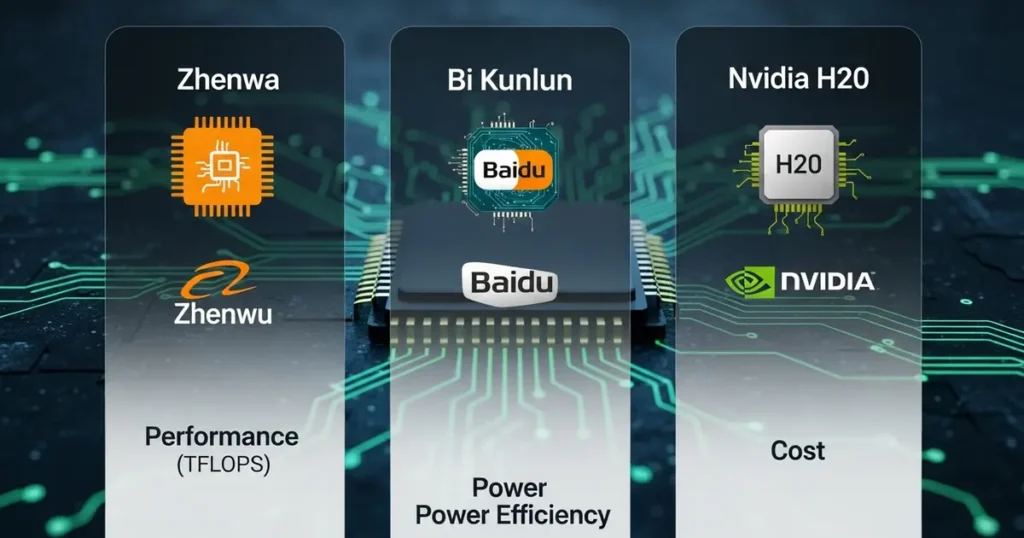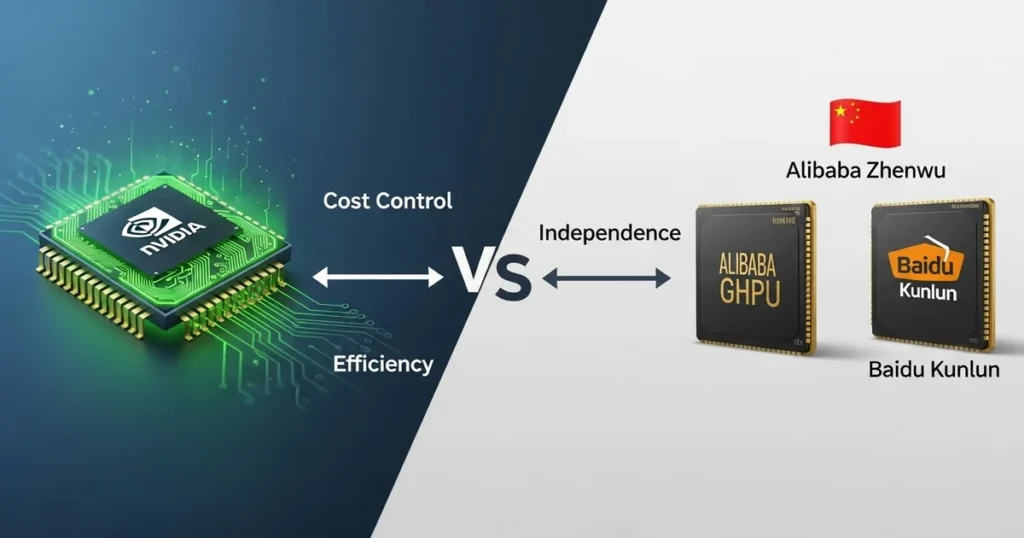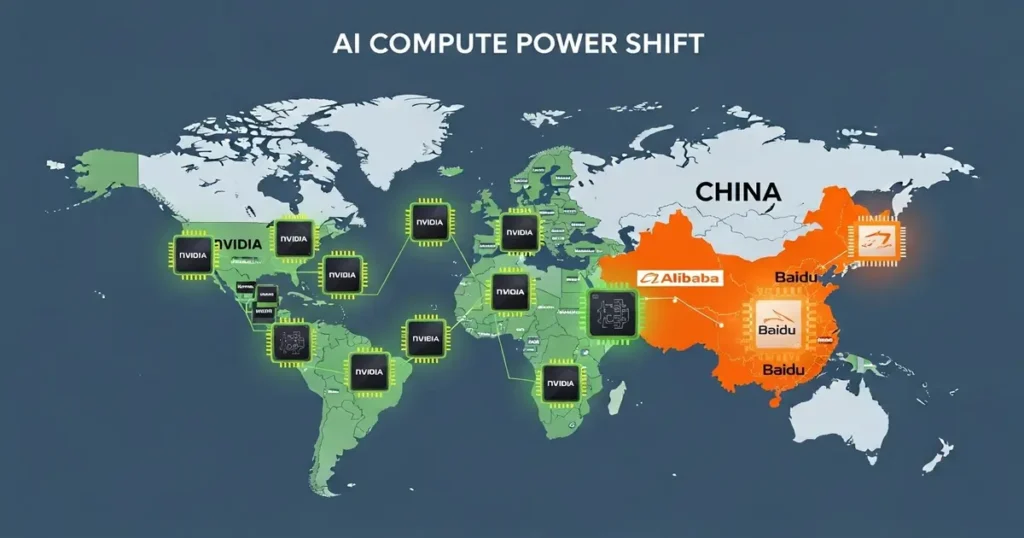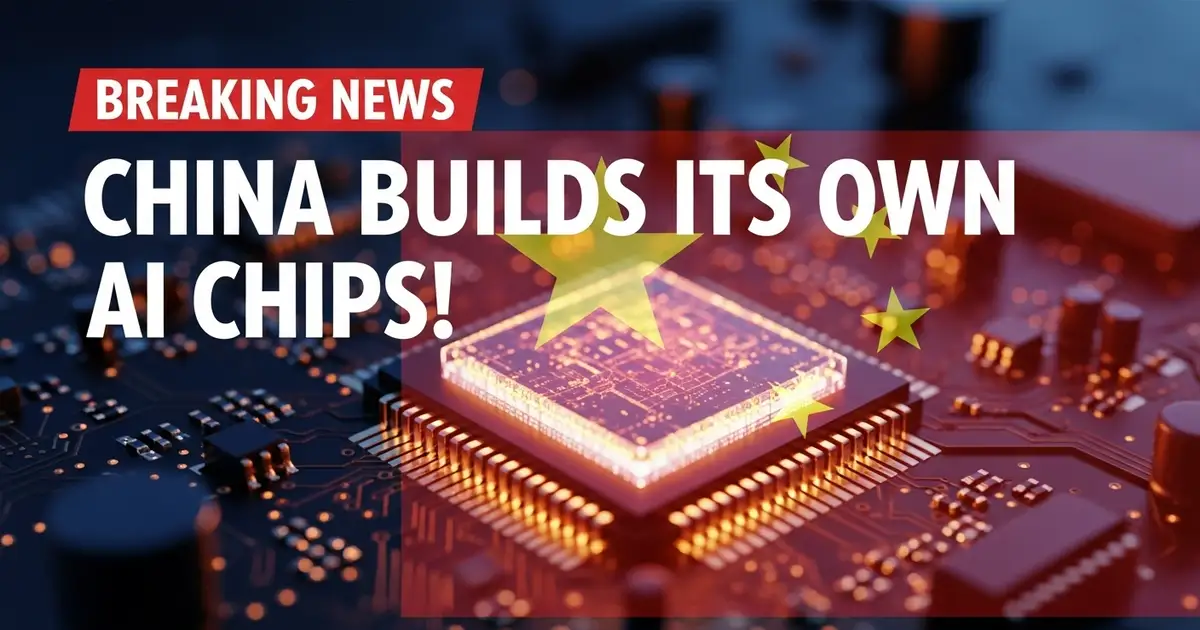Location- New Delhi | Date 12 September 2025 | Read Time: 3 min read
Summary– Chinese tech giants Alibaba and Baidu have begun training their AI models using custom-designed chips, reducing their reliance on Nvidia’s GPUs. This shift signals a new era of AI hardware autonomy as China seeks to secure its place in the global AI race.
Alibaba & Baidu Build Their Own AI Chips: Is Nvidia’s Dominance in Danger?
In a major development, Alibaba and Baidu have built their own AI chips and are reportedly running large-scale AI training workloads on Alibaba’s Zhenwu and Baidu’s Kunlun series.
This move marks a significant step towards technological independence amid global chip export restrictions and rising GPU costs.
Also Read-ASML’s $1.5 Billion Bet on Mistral AI: Europe’s Big Push in the Global AI Race
By adopting custom chips, these companies gain more control over their compute stack, potentially speeding up innovation and reducing costs.
It’s a direct response to the global shortage of Nvidia’s high-end AI chips like the H20, which are in high demand for generative AI projects worldwide.
Spec Comparison: Zhenwu vs Nvidia H20
| Feature | Alibaba Zhenwu Chip | Nvidia H20 GPU |
|---|---|---|
| Architecture | Custom AI-Optimized ASIC | Hopper Architecture GPU |
| Peak Performance | ~800 TFLOPS (AI workloads)* | ~1000 TFLOPS (mixed workloads) |
| Power Efficiency | 20% better per watt (claimed)* | Industry-leading but power-hungry |
| Cost | Lower (China-produced) | High (imported + tariff impacted) |

*Data based on early industry reports; official benchmarks not disclosed.
Expert View: on Alibaba & Baidu Launch In-House AI Chips -What It Means for AI
“This is not just about cost savings — it’s about securing China’s future in AI innovation,” says Dr. Arvind Mehta, AI researcher at IIT Delhi.

“If successful, these chips could reduce dependency on Western hardware and allow faster scaling of domestic AI models.”
Impact Beyond China: Lessons for India
India’s AI ecosystem can take inspiration from this move. As demand for GPUs skyrockets, Indian AI startups and data centres may also explore domestic chip design collaborations with semiconductor hubs like IISc Bengaluru or global foundries.
Local compute capacity will be critical to make AI accessible and affordable at scale.
Alibaba and Baidu’s chips could challenge Nvidia’s dominance
Alibaba and Baidu’s chip bet signals a broader shift a future where AI infrastructure is no longer monopolised by a few chipmakers. If these chips match Nvidia’s performance, China could set a precedent for other nations to invest in their own AI hardware.

For Nvidia, this may be the beginning of a long-term challenge to its market share in one of its largest customer bases.
Key Takeaways
- Alibaba & Baidu are now training AI models on in-house chips.
- This reduces reliance on Nvidia and mitigates supply chain risks.
- Could inspire similar moves globally — including in India’s AI sector.

















